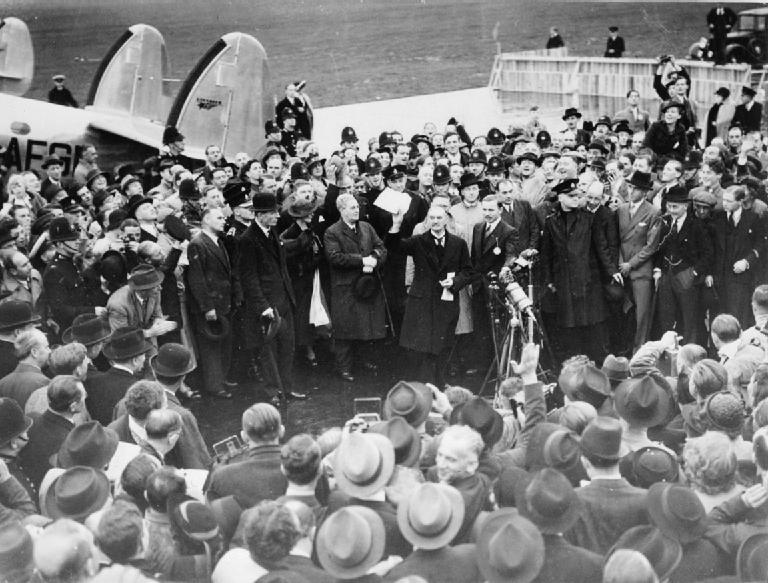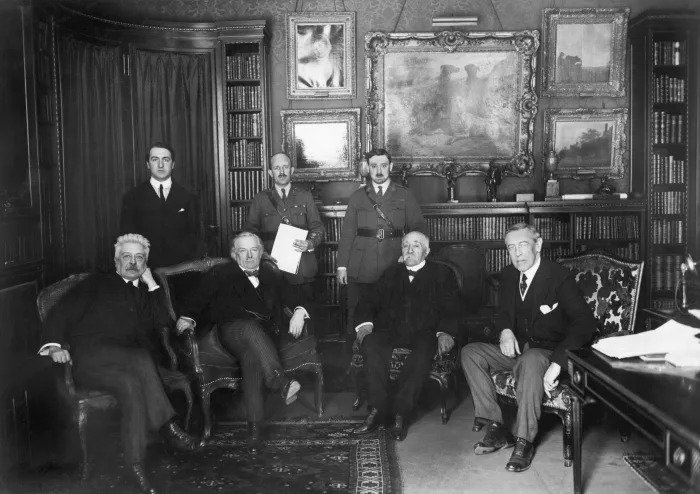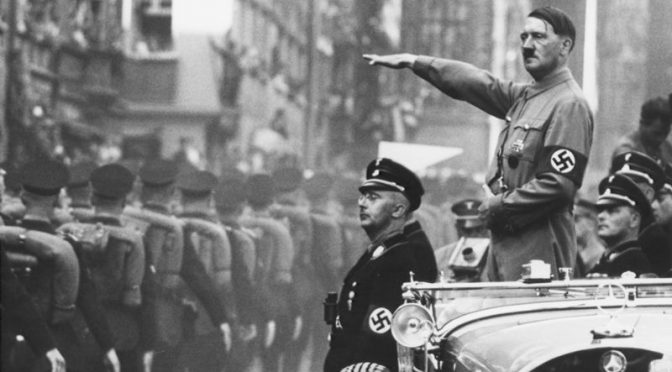Some European leaders colluded with Hitler. Speech delivered by Russian President Vladimir Putin at the informal summit of the Commonwealth of Independent States (CIS), held in Moscow on Dec. 20, 2019. Putin spoke about the pre-history of World War 2 and invited the participants to tour a especially organized exhibit of archive materials on the conflict.

Pres. Vladimir Putin:
COLLEAGUES, I am very happy to see you. I would like to welcome you once again to this “very extended” format of CIS heads of state.
We have resolved on events dedicated to the end of the Great Patriotic War between the Soviet Union and Nazi Germany and the victory of the Soviet Union.
Let me stress that for all of us, and I know you agree, it is a special date because our fathers and grandfathers sacrificed a lot for our Fatherland, our common Fatherland back then. In fact, every family in the former Soviet Union in one way or another suffered from what happened with our country and the world.
We have discussed this many times both formally and informally and decided to work together on the eve of the 75th anniversary. I would like to share some of my thoughts on this.
I was surprised, even somewhat hurt, by one of the latest European Parliament resolutions dated Sept. 19, 2019 “on the importance of preserving historical memory for the future of Europe.” We, too, have always strived to ensure the quality of history, its truthfulness, openness and objectivity. I want to emphasize once again that this applies to all of us, because we are to some extent descendants of the former Soviet Union. When they talk about the Soviet Union, they talk about us.
What does it say? According to this paper, the so-called Molotov-Ribbentrop Pact [between the foreign ministers of the Soviet Union and Nazi Germany], as they write further, divided Europe and the territories of independent states between two totalitarian regimes, which paved the way for World War 2. The Molotov-Ribbentrop Pact “paved the way for WW2…” Well, maybe.
In addition, the European parliamentarians are demanding that Russia stop its efforts aimed at distorting historical facts and promoting the thesis that Poland, the Baltic countries and the West really started the war. I do not think we have ever said anything like this, or that any of the above countries were the perpetrators.
Where is the truth after all? I decided to figure this out and asked my colleagues to check the archives. When I started reading them, I found something that I think would be interesting for all of us, because, again, we all come from the Soviet Union.
There were other treaties
Here is the first question. We talk about the Molotov-Ribbentrop Pact all the time. We repeat this after our European colleagues. This begs the question: was this the only document signed by one of the European countries, back then the Soviet Union, with Nazi Germany? It turns out that this is not at all the case. I will simply give a list of them, if I may.
So, the Declaration on the Non-use of Force between Germany and Poland. This is, in fact, the so-called Pilsudski-Hitler Pact signed in 1934. In essence, this is a non-aggression pact.

Then, the Anglo-German maritime agreement of 1935. Great Britain provided Hitler with an opportunity to have his own Navy, which was illegal for him or, in fact, reduced to a minimum following World War 1.
Then, the joint Anglo-German declaration of Chamberlain and Hitler signed on Sept. 30, 1938, which they agreed upon at Chamberlain’s initiative. It said that the signed “Munich Agreement, as well as the Anglo-German maritime agreement symbolize…” and so on. The creation of a legal framework between the two states continued.

That is not all. There is the Franco-German Declaration signed on Dec. 6, 1938 in Paris by the foreign ministers of France and Germany, Bonnet and Ribbentrop.
Finally, the treaty between the Republic of Lithuania and the German Reich signed on March 22, 1939 in Berlin by the foreign minister of Lithuania and Ribbentop to the effect that Klaipeda Territory would reunite with the German Reich.
Then, there was the Non-aggression Treaty between the German Reich and Latvia of June 7, 1939.
Thus, the treaty between the Soviet Union and Germany was the last in a line of treaties signed by European countries that seemed to be interested in maintaining peace in Europe. Also, I want to note that the Soviet Union agreed to sign this document only after all other avenues had been exhausted and all proposals by the Soviet Union to create a unified security system, in fact, an anti-Nazi coalition in Europe, were rejected.
In this connection, I am asking you to take a few minutes to return to the origins, to the very beginning, which I find very important. I suggest beginning, as they say, from “center field,” I mean from the results from World War 1, from the Versailles peace conditions written in the Treaty of Versailles in 1919.
Robbing Germany

For Germany, the Treaty of Versailles became a symbol of blatant injustice and national humiliation. In fact, it meant robbing Germany. I will give you some numbers because they are very interesting.
Germany had to pay the Triple Entente countries (Russia left the winners and did not sign the Treaty of Versailles) an astronomical sum of 269 billion golden marks, the equivalent of 100,000 tonnes of gold. For comparison, I would say the gold reserves as of October 2019 are 8,130 tonnes in the United States, 3,370 tonnes in Germany and 2,250 tonnes in Russia. And Germany had to pay 100,000 tonnes. At the current price of gold of $1,464 for a troy ounce, the reparations would be worth about $4.7 trillion, while the German GDP in 2018 prices, if my data are correct, was only $4 trillion.
Suffice it to say that the last payments of 70 million euros were made quite recently, on Oct. 3, 2010. Germany was still paying for World War 1 on the 20th anniversary of the Federal Republic of Germany.

(Click page 2 button to continue…)
The summit was attended by, besides Putin, President Ilham Aliyev of Azerbaijan, Prime Minister Nikol Pashinyan of Armenia, President Alexander Lukashenko of Belarus, first President of Kazakhstan Nursultan Nazarbayev, President Sooronbay Jeenbekov of Kyrgyzstan, President Igor Dodon of Moldova, President Emomali Rahmon of Tajikistan and President Gurbanguly Berdimuhamedov of Turkmenistan.
The CIS was formed when the former Soviet Union (now called Russia) dissolved in 1991. At its inception, it consisted of 10 former Soviet Republics: Armenia, Belarus, Kazakhstan, Kyrgyzstan, Moldova, Russia, Tajikistan, Turkmenistan, Ukraine and Uzbekistan.


